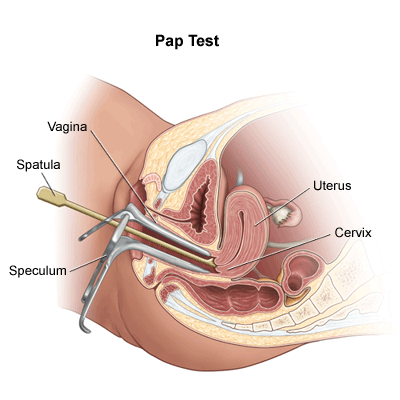Don’t Dismiss That Pap Test
January 2015
Don’t Dismiss That Pap Test
Cervical cancer can be a crafty disease. It can grow unnoticed in your body. The best way to outwit it is with a Pap test. This screening tool can find the disease early, when it’s easier to treat. Unfortunately, some women are still not taking advantage of it, says a recent report.
Stopping a deadly disease
Cervical cancer once killed more women than any other cancer in the U.S. Then in the 1940s the Pap test was developed. Named after the doctor who created it, the test has saved millions of women’s lives. It may well prevent up to half of all cases of cervical cancer.
Despite this success, about 1 out of 10 American women skip this vital screening. That’s what researchers from the CDC recently uncovered. Using data from a national health survey, they looked at how many women had ever had a Pap test. Then they compared the responses with cervical cancer cases nationwide.
More than 133,000 women responded to the Pap test question. Researchers found many of these women were up-to-date on this screening. Of those who weren’t, they tended to be women younger than age 30 and those without health insurance. The most telling finding, though: Cases of cervical cancer were highest in areas of the country—namely, southern states—where fewer women reported being screened.
Staying up-to-date
Many women aren’t fond of Pap tests. They may find them uncomfortable or even scary. But the test can save your life. So when should you get one?
Health experts currently recommend a regular Pap test for all women ages 21 to 65. The latest research shows the test isn’t needed every year. Instead, you should have it once every 3 years. Women at high risk for cervical cancer may need one more often. If you are older than age 30, your doctor may also request a human papillomavirus (HPV) test at the same time. HPV causes most cases of cervical cancer.
During a Pap test, your doctor uses a cotton swab or wooden stick to collect a small sample of cells from your cervix and vagina. Those cells are then sent to a lab, where they are viewed under a microscope. Abnormal cells may be a sign of cervical cancer. But it doesn’t mean you definitely have the disease. Other factors may affect the results.
To help prevent an abnormal result, avoid doing the following within 2 days of your scheduled Pap test:
Douching
Using a tampon
Having sex
Using vaginal creams, medicine, or birth control, such as foam or jelly
Wondering what happens during a Pap test? Learn more here.
Online resources
Updated:
March 21, 2017
Sources:
50 Years of Screening in the Nordic Countries: Quantifying the Effects on Cervical Cancer. S. Vaccarella, et al. British Journal of Cancer. 2014;111:965-9., American Cancer Society, American Society for Colposcopy and Cervical Pathology, and American Society for Clinical Pathology Screening Guidelines. D. Saslow, et al. CA-Cancer J Clin. 2012;62(3):147-72., Update on Prevention and Screening of Cervical Cancer. S. McGraw and J. Ferrante. World Journal of Clinical Oncology. 2014;5(4):744-52., Vital Signs: Cervical Cancer Incidence, Mortality, and Screening-United States, 2007-2012.” V. Benard, et al. MMWR. 2014;63(44):1004-9.
Reviewed By:
Turley, Ray, BSN, MSN
